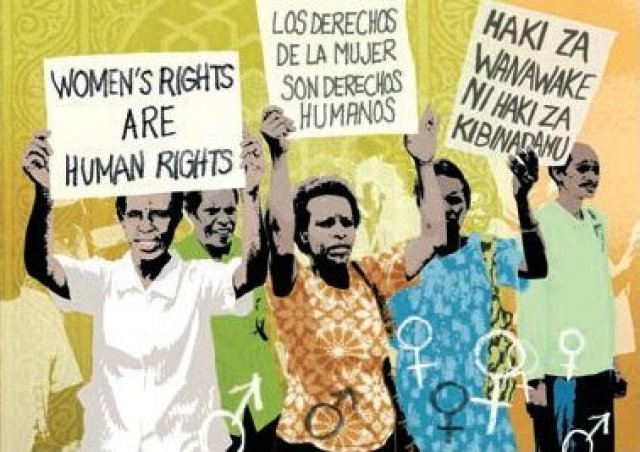
A vigorous exchange of views took place at the Socialist Alliance and Resistance-sponsored forum, “Women’s Rights today” at the Perth Activist Centre on May 30.
The audience heard from a panel of Bec Copestake, who spoke about the Western Australian government’s prostitution bill, Kamala Emanuel, who spoke about reproductive rights, Zoe Bush, who discussed the rape culture on campus at the University of Western Australia (UWA), and Sanna Andrew, who spoke about the victory of the Australian Service Union’s equal pay campaign and the steps taken to achieve it.
Copestake said many workers in the sex industry reject the WA government’s prostitution bill, which legalises some parts of the sex industry but criminalises others.
The proposed law is an attempt to move sex work out of the suburbs. She said criminalising sex work means many sex workers are likely to work outside the law. This makes their work more dangerous, as it becomes less likely that they will report sexual assault or other crimes to the police.
Sex workers may also be less likely to access free sexual health services, out of fear of being traced.
At the same time, the law would make it less onerous for sex workers to work in brothels. It would require licences for self-employed workers and impose a limit of two self-employed worker in the same premises. However, workers employed in or contracted to licensed sex industry businesses would not need a personal licence.
This means the proposed law would strengthen the hand of brothel-owners, who now take about half the earnings of sex workers and would be in a stronger position to take more.
Emanuel described the global situation in which lack of access to skilled care during childbirth, delivery and abortion results in much higher rates of illness and death for women in the world’s poorer countries. She said illegality of abortion makes it harder for women to access skilled care.
She also said there is still no Australia-wide quality sex education curriculum that takes the discussion beyond biology. A better sex education curriculum would encompass affirmation of respect, consent and diversity, while included information about reproduction, contraception, abortion and sexual health.
Emanuel warned that the WA attorney general’s plan to introduce a bill to criminalise “foetal homicide” could impact on women’s autonomy during pregnancy. The change would pave the way to new limitations on women’s access to abortion.
Bush gave a first-hand account of the experiences of women at the UWA orientation camp, which included coercion of women to drink excessively and take part in humiliating “games” of a sexual nature.
She described invasive activities — such as males entering the bathrooms and looking at women while they were showering and pouring wine over them — and an atmosphere that led many women to fear they would be forced to have sex against their will.
She said the student guild leadership and the student club responsible had resisted calls to take a stand against such behaviour. She also said a party to “celebrate” the “fine culture” of the university “as seen in Perth Now” (where revelations of rape allegations at the orientation camp first came to public attention) was planned for May 31.
Andrew described the victorious campaign to raise the pay of the mostly female workforce in the services sector, and the importance of valuing caring and service work as skilled labour.
In an otherwise upbeat presentation, she said she was concerned about the time it will take for the full pay rise to be awarded. She also questioned whether inflation increases will be accounted for and noted that the highest pay rises will go to the most highly paid workers in the sector, who are mostly men.
